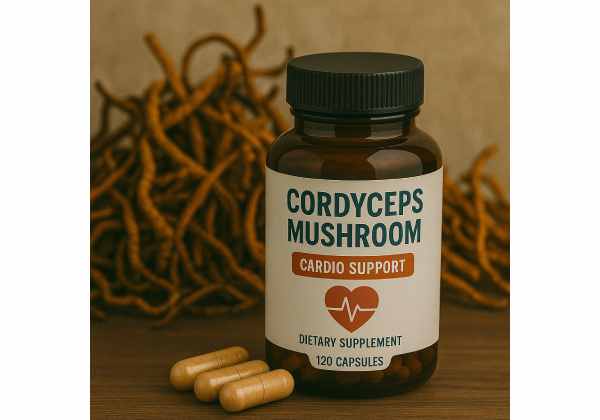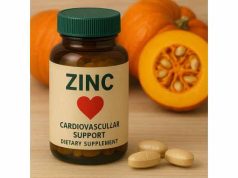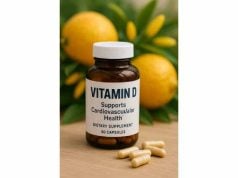
Cordyceps mushrooms have long captivated researchers and health enthusiasts alike, chiefly for their potential role in bolstering heart health and preventing various cardiovascular issues. While they traditionally figure in Eastern medicine, these unique fungi are gaining modern scientific validation for their capacity to improve circulation, support healthy cholesterol levels, and optimize cardiac function. By harnessing key bioactive components, Cordyceps may help reduce inflammation, enhance oxygen utilization, and shield blood vessels from damage. Whether you’re interested in natural heart protection or seeking extra support for existing cardiovascular challenges, delving into the power of Cordyceps for heart health can reveal a valuable, holistic approach to long-term wellness.
Table of Contents
- Foundational Attributes and Primary Characteristics
- Underlying Mechanisms: How Cordyceps Functions
- Cardioprotective Effects Backed by Research
- Guidelines for Dosage, Safe Use, and Key Precautions
- Frequently Asked Questions and Quick Answers
- References and Sources
Foundational Attributes and Primary Characteristics
Cordyceps refers to a genus of parasitic fungi that grow on insect larvae, particularly in high-altitude regions of the Himalayas and other Asian locales. The variant most frequently utilized in wellness regimens is Cordyceps sinensis, although Cordyceps militaris has also gained popularity due to its bioactive composition. In modern supplements, laboratory-cultivated strains often replicate the chemical profile found in wild-harvested varieties, offering a more sustainable and standardized product.
Historical and Cultural Background
- Traditional Chinese Medicine (TCM): In TCM, Cordyceps is lauded for its “adaptogenic” qualities. Practitioners historically recommended it for boosting vitality, fortifying the lungs, and restoring energy in convalescent patients.
- Himalayan Traditions: Harvesters in Tibet and neighboring regions collected wild Cordyceps—sometimes called “caterpillar fungus”—valuing it as a symbol of longevity and vigor.
- Global Emergence: Over the past few decades, research on Cordyceps’ specific health benefits has expanded, solidifying its place in integrative health, particularly for respiratory and circulatory improvements.
Distinct Bioactive Compounds
Cordyceps’ reputed potency stems from an array of unique constituents:
- Cordycepin (3’-deoxyadenosine): A nucleoside derivative known for antimicrobial, anti-inflammatory, and immunomodulatory effects. This molecule often garners attention for its potential to influence cellular energy pathways.
- Polysaccharides: Complex carbohydrates that may enhance immune function and offer antioxidant support. These molecules frequently appear in mushrooms recognized for medicinal utility.
- Sterols: Substances like ergosterol, which can influence cholesterol metabolism and exhibit immunomodulatory properties.
- Peptides and Proteins: Bioactive peptides can regulate inflammatory processes, while specialized proteins may exert antioxidant or enzyme-modulating activities.
Culinary and Supplementary Use
Though not as common in Western cuisine, Cordyceps is sometimes included in soups or stews in Asian cooking. Today, it’s more widely consumed in:
- Capsules: A convenient option that may standardize cordycepin or polysaccharide content.
- Powdered Extracts: Useful for blending into smoothies, teas, or broth-based dishes.
- Tinctures: Liquid extractions can offer easily absorbed forms, though potency varies by brand and preparation methods.
General Wellness Attributes
While the focus here is heart health, Cordyceps has historically been used for various wellness objectives:
- Enhanced Stamina: Endurance athletes sometimes turn to Cordyceps to improve oxygen uptake and reduce fatigue.
- Respiratory Support: Touted for assisting individuals with compromised lung function or those living in high-altitude environments.
- Immune Regulation: Preliminary data suggest it helps modulate immune responses, including heightened protective activities without excessive inflammation.
Intersection with Cardiovascular Objectives
For individuals concerned about blood pressure, cholesterol, or arterial stiffness, Cordyceps might deliver complementary benefits. By targeting both direct (e.g., antioxidant and anti-inflammatory) and indirect (e.g., improved oxygen utilization) pathways, the fungus’s synergy with conventional heart-support strategies—like healthy diets, exercise, and medical therapy—can be noteworthy.
Laboratory Cultivation and Sustainability
Given wild Cordyceps’ scarcity and high market value, most commercial products come from cultivated strains:
- Controlled Growth Conditions: These ensure consistent cordycepin and polysaccharide levels and reduce contamination risks.
- Environmental Preservation: Cultivation spares fragile mountain ecosystems from overharvesting.
- Quality Assurance: Reputable brands test for potency, purity, and absence of heavy metals or microbial contaminants.
In sum, Cordyceps mushrooms’ longstanding cultural reverence meets modern research validations, setting the stage for their inclusion in heart health protocols. Their distinctive biochemical profile and historical use in invigorating the body underscore a potentially valuable role in cardiovascular support.
Underlying Mechanisms: How Cordyceps Functions
Cordyceps mushrooms exert their physiological effects through a network of interconnected mechanisms that may collectively strengthen cardiovascular resilience. By influencing pathways like ATP production, inflammation regulation, and vascular dynamics, Cordyceps could help stabilize the factors that underlie a healthy heart.
Enhancement of Cellular Energy (ATP)
A hallmark attribute of Cordyceps is its reported capacity to boost ATP synthesis:
- Cordycepin and Adenosine Analogs: Because cordycepin structurally resembles adenosine, it can interact with cell receptors integral to energy metabolism.
- Mitochondrial Optimization: Some evidence suggests Cordyceps fosters better oxygen utilization in muscle cells, including cardiac and skeletal muscles, thus potentially improving endurance and reducing strain on the heart.
Modulation of Inflammatory Processes
Chronic inflammation is a major driver of cardiac disease progression. Cordyceps may offer anti-inflammatory support:
- Inhibition of Pro-Inflammatory Cytokines: Research indicates the fungus might downregulate molecules like TNF-α, IL-1β, and IL-6.
- Maintenance of Endothelial Health: By reducing oxidative and inflammatory stress, Cordyceps helps preserve the endothelium’s ability to dilate or constrict blood vessels as needed.
Antioxidant and Anti-Aging Pathways
Oxidative stress accelerates arterial damage, fosters plaque formation, and impairs contractile function. Cordyceps’ potential antioxidant properties include:
- Free Radical Scavenging: Polysaccharides in Cordyceps have demonstrated radical-neutralizing abilities in certain lab assays.
- Synergy with Enzymatic Defenses: By boosting levels or function of antioxidant enzymes (e.g., SOD, catalase), Cordyceps assists in clearing reactive oxygen species that could degrade heart muscle cells.
Influence on Lipid Metabolism
Cordyceps might also help moderate blood lipid levels:
- Reduced LDL Accumulation: Some in vitro findings suggest that Cordyceps extracts may hinder LDL oxidation, a key step in atherosclerosis.
- Improved Lipid Profile: Preliminary animal trials imply that consistent use may lead to a modest decrease in total cholesterol and triglycerides. However, large-scale human studies remain ongoing for definitive confirmation.
Regulation of Platelet Function and Coagulation
Another area of potential interest is how Cordyceps can balance blood clot formation:
- Antithrombotic Effects: Certain constituents might reduce abnormal platelet aggregation, lowering the risk of clots that block coronary arteries.
- Harmonizing Mechanisms: While beneficial in preventing excessive clotting, Cordyceps does not appear to provoke excessive bleeding under typical usage, though more data is needed to fully establish safety for individuals on anticoagulant therapies.
Support for Vascular Tone and Blood Pressure
Hypertension stands as a common impetus for heart disease. Cordyceps may help:
- NO Pathway Enhancement: Cordyceps is believed to support nitric oxide (NO) production or stability, facilitating vasodilation and better blood pressure regulation.
- Reduced Vascular Resistance: By taming oxidative and inflammatory triggers, Cordyceps might keep arteries pliable and less prone to excessive constriction.
Alleviation of Cardiac Stress
The heart’s workload escalates under conditions like tachycardia or elevated blood pressure. By optimizing ATP availability, improving oxygen uptake, and reducing inflammation, Cordyceps might lower myocardial strain:
- Potential Effect on Heart Rate: Some studies on athletes and older adults suggest improvements in heart-rate recovery post-exercise.
- Protection Against Ischemic Damage: In animal models, Cordyceps extracts have hinted at protective qualities following restricted blood flow, likely linked to antioxidant mechanisms.
Immune and Hormonal Balancing
Cardiovascular health intersects with immune and endocrine function more than one might suspect:
- Stress Hormone Modulation: Chronic stress fosters cortisol spikes, which in turn can prompt inflammation and raise blood pressure. Cordyceps may modulate stress responses by stabilizing adrenal hormone production.
- Insulin Sensitivity: Imbalanced glucose control can degrade vascular health. Some evidence points to improved insulin sensitivity or glucose metabolism in subjects receiving Cordyceps, providing indirect cardiometabolic advantages.
Interactions with Other Heart-Friendly Nutrients
Cordyceps may amplify the effects of complementary compounds:
- Omega-3 Fatty Acids: Shared anti-inflammatory synergy could further diminish vascular damage.
- CoQ10: Both substances appear to encourage more efficient mitochondrial function, potentially compounding improvements in cardiac energy.
- Magnesium and Potassium: Key electrolytes that regulate heart rhythm may benefit from the stress-buffering or anti-inflammatory outcomes of Cordyceps.
Overall, Cordyceps’ multifaceted nature—touching on inflammation, antioxidant defense, energy production, and vascular regulation—underpins its potential in aiding heart wellness. By reinforcing these critical biological pathways, it emerges as a unique, integrative tool for those intent on preventing or mitigating cardiovascular challenges.
Cardioprotective Effects Backed by Research
A comprehensive exploration of Cordyceps for cardiovascular health demands attention to scientific literature spanning cell studies, animal research, and emerging human trials. While robust, large-scale clinical data remain in progress, the available evidence offers persuasive indications of Cordyceps’ heart-protective qualities.
Blood Pressure and Circulatory Outcomes
- Animal Models: Multiple rodent studies highlight that supplementation with Cordyceps extracts can lead to stabilized or mildly reduced blood pressure, coupled with enhanced endothelial function.
- Observational Human Data: Though mostly small in sample size, certain trials involving older adults or hypertensive individuals suggest improved blood pressure readings after consistent use of Cordyceps. Some participants also report fewer headaches or dizziness linked to high blood pressure.
Cholesterol and Lipid Management
Maintaining a healthy lipid profile is integral for preventing atherosclerosis. Preliminary findings indicate:
- Reduced Total Cholesterol: In specific trials with hyperlipidemic rodents, Cordyceps supplementation lowered total cholesterol. Some human case reports mirror these results, though more controlled investigations are necessary.
- Triglyceride Levels: A handful of smaller-scale human studies observe modest decreases in triglycerides, supporting the hypothesis of beneficial hepatic fat metabolism.
- Improved LDL/HDL Ratios: Although not universal, certain participants witness favorable shifts in LDL and HDL levels, pointing to a potential synergy with dietary modifications.
Myocardial Protection and Arrhythmia
Cordyceps extracts may exhibit cardio-protective traits, especially in compromised heart scenarios:
- Ischemia-Reperfusion Injury: Animal experiments show decreased tissue damage when Cordyceps is administered pre- or post-ischemia, thanks to the mushroom’s presumed antioxidant and anti-inflammatory actions.
- Arrhythmia Risk: A few in vitro analyses propose that by balancing calcium homeostasis and cellular ATP, Cordyceps might stabilize electrical activities in cardiomyocytes. Direct human data remain limited, however.
Endothelial Function and Vascular Flexibility
Preservation of endothelial integrity is vital for preventing plaque accumulation and maintaining healthy blood flow:
- Reduced Oxidative Assault: By curtailing free radicals, Cordyceps supports nitric oxide (NO) pathways essential for vasodilation.
- Lessened Inflammatory Markers: Markers like CRP and IL-6, known to degrade endothelial capacity, appear lower in some cohorts using Cordyceps. This effect underscores a protective dimension for coronary arteries.
Exercise Performance and Cardiac Output
Cordyceps gained attention in sports communities for its reputed ability to bolster stamina. Enhanced cardiac output and oxygen uptake can also translate to everyday cardiovascular benefits:
- VO2 Max Improvements: Controlled human trials in older adults or untrained participants found mild enhancements in VO2 max, reflecting better aerobic capacity.
- Heart Rate Efficiency: Some evidence suggests Cordyceps fosters more efficient heart rate recovery post-exercise, signifying less stress on the myocardium.
Support for Heart Failure or Weakened Cardiac Function
Though not a standalone therapy, some integrated approaches for individuals with mild heart failure have included Cordyceps:
- Combined with Conventional Drugs: Preliminary Chinese studies found improved quality of life and certain biomarker changes for heart failure patients incorporating Cordyceps alongside standard medication. More rigorous Western-style clinical trials are needed to confirm this synergy.
- Reduced Fluid Retention: Anecdotal reports propose Cordyceps might modulate kidney function, indirectly helping those with congestive heart issues by balancing fluid distribution.
Known Limitations in the Literature
While the above findings are promising, certain caveats persist:
- Small Sample Sizes: Many existing human trials involve fewer than 100 participants, limiting statistical power.
- Short Duration: Studies rarely exceed three to six months, leaving the long-term efficacy unknown.
- Variability in Extract Standardization: Different production methods yield varying cordycepin or polysaccharide concentrations, complicating cross-study comparisons.
Still, the cumulative data implies that Cordyceps can confer tangible heart health perks for many, especially as part of broader lifestyle and dietary interventions. Ongoing and future double-blind, randomized controlled trials will ideally clarify these initial, encouraging outcomes, guiding more precise application for cardiac health.
Guidelines for Dosage, Safe Use, and Key Precautions
While Cordyceps stands out for its potential benefits, discerning the right dose, sourcing reputable products, and understanding who might need special caution ensures that users can safely tap into its cardioprotective qualities. Here are foundational pointers for integrating Cordyceps into your heart-health regimen.
Typical Supplement Forms and Potency
Consumers will encounter various product types:
- Capsules or Tablets: Often standardized to certain cordycepin or polysaccharide percentages. These forms are convenient and ensure more predictable dosing.
- Powdered Extracts: Versatile for mixing into teas, smoothies, or soups. Potency can vary widely, so checking label details about standardization is vital.
- Liquid Tinctures: Less common but beneficial for those averse to pills. Concentration levels differ significantly between brands.
Standard Dosing Ranges
No universal guideline suits everyone, but some general references include:
- Mild Support: 1,000–2,000 mg of Cordyceps mycelium or standardized extract daily for general wellness or mild cardiovascular maintenance.
- More Targeted Use: Up to 3,000 mg daily in split doses, especially in individuals aiming to address specific issues like mild hypertension, subject to professional advice.
- Cordycepin Content: If measuring by cordycepin, typical recommended daily intakes range around 5–10 mg. However, these figures can differ based on the product’s extraction ratio.
Ideal Timing and Administration
- With or Without Meals: Many prefer taking Cordyceps alongside meals to mitigate digestive upset, though certain studies suggest no major difference in nutrient absorption.
- Incorporation into Routines: Some find that distributing doses morning and evening helps sustain consistent blood levels of the active compounds.
- Pairing with Other Nutrients: Cordyceps often complements adaptogenic herbs (like Rhodiola or astragalus) or standard heart-friendly supplements (omega-3s, CoQ10), but remain mindful of potential synergy or interactions.
Quality Control and Sourcing
Ensuring product integrity is crucial:
- Look for Reputable Brands: Companies employing Good Manufacturing Practices (GMP) and third-party testing typically maintain higher product quality.
- Check Cordycepin or Polysaccharide Percentage: Standardized extracts that specify content help gauge potency.
- Avoid Adulterants: Inferior or counterfeit mushrooms can appear in unscrupulous markets. Verified labeling, batch testing, or certifications (e.g., USDA Organic) can help reassure authenticity.
Potential Side Effects
Cordyceps is generally regarded as safe, with mild side effects in some:
- Digestive Distress: Bloating, gas, or slight nausea are occasionally reported, typically alleviated by lowering the dose or taking it with food.
- Mild Headaches or Dizziness: Rare, but can occur if individuals are sensitive or if combining multiple supplements with energizing effects.
- Allergic Reactions: Extremely rare, but possible for those allergic to mushrooms or fungus. Stop use if experiencing hives, swelling, or breathing difficulties and seek medical care.
Safety Concerns and Contradictions
- Preexisting Medical Conditions: People with autoimmune disorders or those on immunosuppressants should be cautious since Cordyceps might stimulate immune function.
- Pregnant or Breastfeeding: Insufficient data exist regarding its safety. Consultation with a healthcare provider is strongly advised.
- Blood Thinners or Anticoagulants: Cordyceps may mildly affect coagulation pathways, so individuals on warfarin, heparin, or similar should monitor for changes and consult a medical professional.
Medication Interactions
- Immunosuppressive Drugs: Since Cordyceps is thought to enhance immunity, it may conflict with medications designed to reduce immune activity.
- Hypoglycemic Agents: Preliminary evidence of Cordyceps helping regulate blood sugar suggests caution in patients on insulin or oral hypoglycemic drugs.
- Steroids or Anti-Inflammatories: While synergy might be beneficial, it’s essential to watch for any unintended intensification of effects.
Integrating into a Heart-Healthy Lifestyle
Cordyceps alone isn’t a substitute for fundamental heart-care measures. Its benefits typically manifest most effectively when combined with:
- Balanced Nutrition: Emphasizing vegetables, fruits, whole grains, and lean proteins ensures all-around micronutrient support.
- Regular Physical Activity: Cardiovascular exercises help maintain healthy blood pressure, improve lipid profiles, and complement the potential metabolic improvements from Cordyceps.
- Stress Management: Chronic stress disrupts inflammatory and cardiovascular regulation. Incorporating relaxation techniques or therapy may amplify Cordyceps’ adaptogenic role.
- Routine Checkups: Individuals with known risk factors or conditions should keep up with medical appointments, monitoring relevant markers like blood pressure, cholesterol, and glucose.
With these guidelines, incorporating Cordyceps into a wellness plan can be a safe, strategic decision to bolster cardiovascular defenses. When used mindfully and in concert with proven lifestyle and medical interventions, this ancient fungus has the potential to become a valuable ally for those seeking holistic heart protection.
Frequently Asked Questions and Quick Answers
How does Cordyceps benefit cardiovascular function?
Cordyceps may improve cardiovascular function by boosting energy production in cells, reducing inflammation, and enhancing antioxidant defenses. It also supports healthy cholesterol levels and may promote better blood flow through expanded nitric oxide pathways.
Can I take Cordyceps with other heart supplements?
Yes. Many individuals combine Cordyceps with supplements like CoQ10 or omega-3s for synergistic effects. Always confirm compatibility with a healthcare professional, particularly if you’re on prescription drugs.
Will Cordyceps lower my blood pressure?
Studies suggest it can support normal blood pressure ranges by improving endothelial health and reducing oxidative stress. However, it’s not a replacement for medication. Monitor readings and consult your doctor for personalized advice.
Are there side effects to taking Cordyceps?
Cordyceps is generally safe but can sometimes cause digestive upset, mild headaches, or allergic reactions in rare cases. Discontinue use and seek medical input if you experience severe or persistent symptoms.
Does Cordyceps help cholesterol levels?
Limited research indicates it may reduce total cholesterol and support balanced HDL and LDL levels. More human studies are needed to confirm whether it can significantly improve lipid profiles.
Is Cordyceps safe for long-term use?
Most evidence and traditional practices imply it’s safe when sourced from reputable providers at recommended doses. Still, regular health checkups and balanced supplementation practices remain essential for ongoing well-being.
Can Cordyceps enhance exercise performance and heart endurance?
Some data suggests Cordyceps helps with oxygen utilization, stamina, and quicker heart rate recovery. This can indirectly benefit heart health but results vary among individuals.
Should pregnant or breastfeeding women use Cordyceps?
Safety data for these groups is insufficient. Healthcare providers typically recommend caution and may advise against use until more robust evidence emerges.
How long until I see cardiovascular benefits from Cordyceps?
Improvements in energy or mild blood pressure support might be noticed within several weeks. For comprehensive changes in lipid profiles or inflammatory markers, sustained intake over a few months is often necessary.
Can Cordyceps replace my heart medication?
No. While it can complement conventional treatments, never discontinue or reduce prescription medications without medical guidance. Cordyceps should form part of a broader plan in consultation with healthcare professionals.
References and Sources
- Holliday, J., et al. “On the Trail of the Yak: Ancient Cordyceps in the Modern World.” Medicinal Mushroom Science, vol. 1, 2008, pp. 42–58.
- Paterson, R. R. M. “Cordyceps – A Traditional Chinese Medicine and Another Fungal Therapeutic Biofactory?” Phytochemistry, vol. 69, no. 7, 2008, pp. 1469–1495.
- Zhou, X., et al. “Cordyceps Fungi: Natural Products, Pharmacological Functions and Developmental Products.” Journal of Pharmacy and Pharmacology, vol. 61, no. 3, 2009, pp. 279–291.
- Koh, J. H., et al. “Hypocholesterolemic Effects of Mycelia of Cordyceps sinensis, a Chinese Medicinal Mushroom.” Nutrition Research, vol. 23, no. 8, 2003, pp. 817–824.
- Chen, S., et al. “Cordycepin Reduces Oxidative Stress and Inflammation in Vascular Endothelial Cells.” Molecules, vol. 24, no. 14, 2019, p. 2585.
- Li, S. P., et al. “Effects of Cordyceps sinensis on Natural Killer Cell Activity and Anti-Tumor Activity in Mice.” Life Sciences, vol. 73, no. 19, 2003, pp. 2371–2380.
- Xiang, L., et al. “Cordycepin Suppresses Pro-inflammatory Cytokines in LPS-Stimulated Macrophages via Inhibition of ERK1/2 and NF-κB Pathways.” Immunopharmacology and Immunotoxicology, vol. 31, no. 4, 2009, pp. 594–602.
Disclaimer:
The content presented here is for educational purposes and should not replace professional medical guidance. Always consult a qualified healthcare practitioner before making substantial adjustments to your diet, supplements, or medications, especially if you have underlying heart conditions or other medical concerns.
If you found this article valuable, please share it on Facebook, X (formerly Twitter), or other social media platforms, and follow us for more insights into natural methods to fortify cardiovascular well-being!






